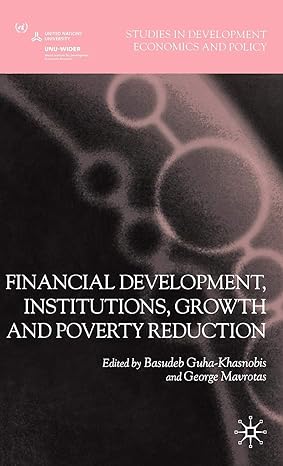Question
Overselling Sustainability Reporting Over the past 20 years many forward-thinking academics, consultants, executives, and NGO leaders have promoted a theory outlining how businesses can prosper
Overselling Sustainability Reporting
Over the past 20 years many forward-thinking academics, consultants, executives, and NGO leaders have promoted a theory outlining how businesses can prosper while pursuing a greener and more socially responsible agenda. These people, whom I refer to collectively as Sustainability Inc., believed that if companies committed to measuring and reporting publicly on their sustainability performance, four things would happen:
Individual companies social, environmental, and governance (ESG) performance would improve (because what gets measured gets managed).
A link tying companies with better sustainability records to better equity returns would emerge.
Investors and consumers would reward companies with strong sustainability performanceand put pressure on those that lagged.
Ways to measure social and environmental impact would become more rigorous, accurate, and widely accepted.
Over time, this virtuous cycle would result in a more sustainable form of capitalism.
A casual observer might think that this approach is working. In 2011 the authors of an HBR article titled The Sustainable Economy expressed confidence that sustainability would soon simply be how business is done. To some extent, theyve been proven right: The number of companies filing corporate social responsibility (CSR) reports that use the GRI (Global Reporting Initiative) standardsthe most comprehensive ones availablehas increased a hundredfold in the past two decades. Meanwhile, according to the Global Sustainable Investment Alliance, socially responsible investment has grown to more than $30 trillionone-third of all professionally managed assets.
However, a closer look at the evidence suggests that the impact of the measurement and reporting movement has been oversold. During this same 20-year period of increased reporting and sustainable investing, carbon emissions have continued to rise, and environmental damage has accelerated. Social inequity, too, is increasing. For example, in the United States the gap between median CEO compensation and median worker pay has widened, even though public companies are now required to disclose that ratio.
Required:
1. Do you think sustainability reporting is an important part of business operations? (250 words minimum)
2. Critically discuss the following paradoxical statement,
Even though sustainability in business is on the rise, carbon emissions, environmental damage, and social inequity is also on the rise. (250 words minimum)
Step by Step Solution
There are 3 Steps involved in it
Step: 1

Get Instant Access to Expert-Tailored Solutions
See step-by-step solutions with expert insights and AI powered tools for academic success
Step: 2

Step: 3

Ace Your Homework with AI
Get the answers you need in no time with our AI-driven, step-by-step assistance
Get Started


